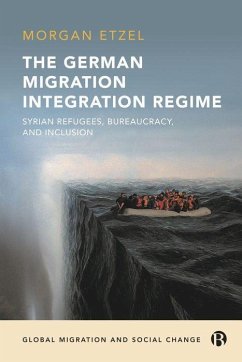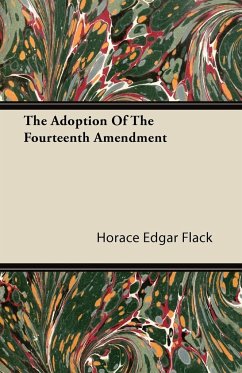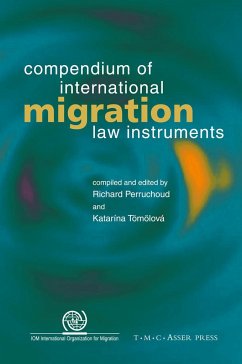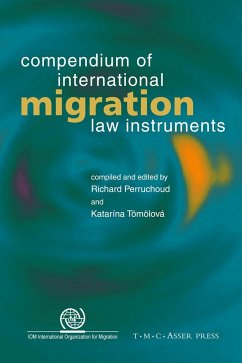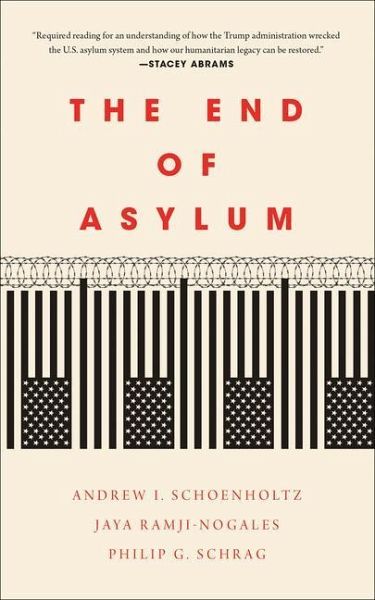
The End of Asylum

PAYBACK Punkte
9 °P sammeln!
"Forty years ago, Congress passed the Refugee Act of 1980 to protect people who flee persecution to seek safety in the United States. This legislation adopted a refugee definition based on the UN Refugee Convention and prescribed equitable and transparent procedures for a uniform asylum process. Until the Trump administration, this commitment to protect asylum seekers who had reached our borders was honored by Republican and Democratic administrations alike. Beginning in 2018, Donald J. Trump and his Attorneys General systematically demolished the system of humanitarian protections for asylum ...
"Forty years ago, Congress passed the Refugee Act of 1980 to protect people who flee persecution to seek safety in the United States. This legislation adopted a refugee definition based on the UN Refugee Convention and prescribed equitable and transparent procedures for a uniform asylum process. Until the Trump administration, this commitment to protect asylum seekers who had reached our borders was honored by Republican and Democratic administrations alike. Beginning in 2018, Donald J. Trump and his Attorneys General systematically demolished the system of humanitarian protections for asylum seekers, twisting statutory language beyond recognition through adjudicatory rulings, procedural changes, regulations of dubious legality, and new fees. This book offers a comprehensive examination of the rise and demise of the US asylum system. It explains why Congress passed a statute to require the executive branch to create and administer a formal asylum system. It describes the Refugee Act of 1980, explaining both the substantive standards laid out by Congress and the process put into place by the executive branch, as well as the challenges the asylum system faced in the decades following enactment. The central chapters analyze the Trump administration's many attacks on the asylum process, beginning in earnest in 2018: undermining substantive asylum law; dismantling the asylum process; and laying a minefield of obstacles in the path of asylum seekers' access to the process, particularly those requesting protection at our southern border. The final chapter describes how a new administration and a new Congress can and should quickly repair the damage, reforming the statute to create a strengthened and modernized asylum system that cannot be so easily wrecked by a destructive executive"--





